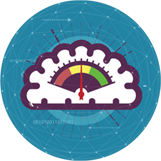(2008). The role of inhibition in learning. In , Human Learning: Biology, Brain, and Neuroscience. presented at the North-Holland, North-Holland: Elsevier.
Abstract: On one hand, learning, by definition, involves the acquisition of knowl- edge. Inhibition, on the other hand, involves the reduction in accessibility of a memory trace. Throughout this chapter we have presented evidence that, though seemingly at odds with each other, learning and inhibition are tightly integrated. Whether we are studying for an exam, conversing with our colleagues, or writing up a paper, we depend on executive control to retrieve the necessary facts (selective retrieval) while excluding goal- irrelevant or otherwise bothersome memories from consciousness (memory stopping). When memories compete for retrieval or intrude, the prefrontal cortex can exert inhibitory control, thereby allowing us to accomplish our present goals. As we have seen, however, inhibition yields lasting and potentially frustrating consequences on the targets of memory control. There is still a great deal to learn about the mechanisms and consequences of inhibition; yet there is little question that a memory system that serves our goals relies upon a healthy dose of forgetting. »PDF
